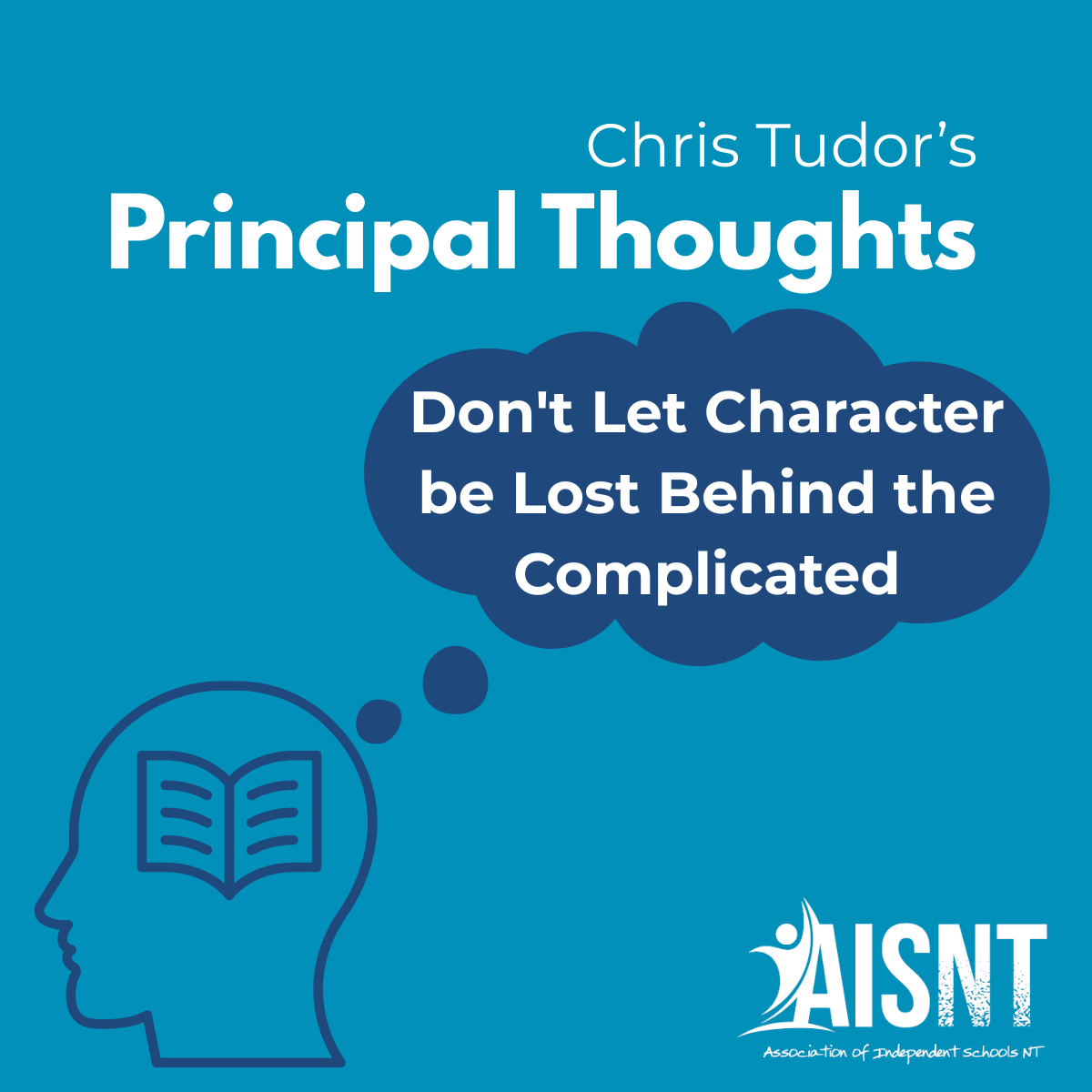THE POWER OF ENTHUSIASM
Pressure and stress are often features of a Principal’s life and working out how to deal with them personally and effectively can be an ongoing challenge. It is when these two problems start to loom large that a natural inclination towards enthusiasm drifts over the sandbar and out to sea. But enthusiasm is important, can be refreshing, though maybe exhausting, and can ensure that the lights do go on and staff are uplifted. Uplifting the staff may also result in “up lift” for the Principal.
Enthusiasm is such a powerful phenomenon in a school and positively influences not only staff but also students. When I suggest staff I am referring to all staff, not only teaching staff. Non teachers can have a really positive effect on the school. I enjoyed saying that all people in the school were teachers in some way. Students are great observers and they will pick up positive ways of doing things from any member of the school community. One of our long term maintenance men became our school philosopher. His experiences in life provided him with amazing wisdom. I know that he had a profound influence on many children including my own.
A Principal can really generate enthusiasm and is obviously in a key position to influence the school’s climate. In my very early years of teaching I prepared a group of students to present a play and review. We had worked hard at it, all created at lunch time and after hours. With great excitement I went off to see the Principal and Deputy to seek permission to hold it in the evening so parents could come. The reply I received was very unexpected and absolutely floored me. “No Mr. Tudor not in the evening. We could maybe present it to the Form 3s (Year 9s) after lunch one day.”
I left speechless, returned to the staff room shattered and sank my foot into my desk in frustration. Yep! I did hurt my toe but I never forgot that “shower of rain”. However, being fairly determined I didn’t give up. I discovered that the real issue was that the staff would have to be paid tea money and the school didn’t want to do that. A really successful evening did occur after I asked participating staff if they would forgo tea money. There was no problem getting heaps of staff - teachers are usually generous people.
The evening went well and set the scene for future productions which were so much fun and helped fire an enthusiastic performing culture. This incident was an important experience for me which travelled near the top of my kit bag through my years as Principal. Of course there are times when a Principal has to say “no” but being careful how it is said was a key and if the request was to have a positive influence on the School’s climate it was good to really try and make such requests work. A request which would damage school climate usually just required a short, polite “no”.
I grew up in the 1950s and 1960s when autocracy was often the basis of education and even when the revolution of the 1960s was flowering, there was still a fair measure of autocracy throughout society and in schools. I was in the School Cadet Corps, a force of about 350 students. This was a time of extremes, World War 2 was not long over, Korea had been fought and by the mid-1960s, Vietnam was in full swing which of course included military conscription. It was a time when it was expected that students would do the right thing though often they didn’t.
Cadet Corps thrived in Independent, Catholic and Government Schools in Victoria and I guess other states. Cadets were issued with a fully functioning. 303 rifle which they would fire on occasions on rifle ranges. The simple rules on being issued with the rifle were: keep it clean, keep it in a safe place at home and don’t travel on public transport with the bolt in (vital part of the firing mechanism). On camps, where there were genuine war games, Cadets were issued with blank ammunition with the clear instruction that blanks should not be fired at anyone as they could kill at 8 paces. There was an expectation that the students would follow the rules without question.
Just before I moved into Year 12 I was sent on a Cadet under Officers’ course at the army training facility, run by regular soldiers. I enjoyed Cadets and also enjoyed the CUOs’ course. The basis of most aspects of leadership was autocracy, following orders and doing as you were told.
The following year I was given a Platoon in C Company at school. I enjoyed being a platoon commander, leading the “men”, working hard at the job but in the process being definitely, after the modelling received on the course, a real autocrat. I’m glad in many ways I was because I learnt through that year the disadvantages of an autocracy and managed to get it well and truly out of my system. Some cadets responded well to such leadership some didn’t. I’m truly grateful for understanding that. If I hadn’t had that experience, a more than acceptable autocratic streak may have lingered in my approach to leadership. And then it was the 1970s and the “Age of Reason” was in full flight. An autocratic approach to leadership was less and less appreciated. This was particularly so at my University, Monash.
Autocratic leadership results in people either being disempowered or becoming lazy in decision making. By the time I was in the teaching force autocracy was highly resented and was clearly not the most effective way to get the best out of teachers. I came under the leadership of an autocratic Principal who swept into the school with the Board’s direction to tighten it up and make the staff more accountable. The staff were in fact very professional, hardworking, dedicated to the mission of the school and excellent with the students. Most of the Board were from autocratic, hierarchical backgrounds and really didn’t understand another way. Their choice of an autocratic Principal was a miss cue. The new Principal decided to introduce a sign in and out book. The climate changed and the goodwill and extra hours of work undertaken by staff went out the window. Most signed out not long after the bell. The autocratic idea seemed great but the goodwill was gone.
Sometimes when running a school we can concentrate on those who don’t do the right thing. If these are in a minority, then deal with them but always remember that you are not likely to get 100% of people giving 100%. Don’t wreck the enthusiasm of the other 90% because of that 10%.
Dylan was certainly right, “The times they are a changing”. In the eighties I completed a Graduate Diploma in Ed Admin. “Participatory Democracy” was a central theme of this qualification. Though I believe I’m not normally an autocrat the merits of Participatory Democracy should be considered carefully, because I believe it has strengths and weaknesses as an approach - perhaps a conversation for another time.
However the Principal as the leader will sometimes have to make some decisions which are autocratic given the position of responsibility the Principal holds. I don’t think this makes the Principal an unpleasant autocrat particularly if staff know they are often included in decision making and are listened to in some relevant way.
Autocracy can ultimately crush enthusiasm. Realising that enthusiasm is infectious and has such an excellent effect on outcomes and morale is of true value. So understanding how enthusiasm in your particular school is generated is so important. Fostering enthusiasm is essential to a healthy school.
I’ll finish with this small tale from 1979. I was working extremely hard and enthusiastically and was definitely overcommitted. One day in the midst of this I went to my pigeon hole where I found an envelope from the Principal. On opening it I discovered inside a “thoughtful biro”, not an expensive one, and a note to thank me for all my hard work. This really touched me and has always remained in my mind as something really special. The Principal was acknowledging what I was doing and thanking me. Thanking and acknowledging people is one of a Principal’s really vital tasks. His thought was definitely the right thought and my enthusiasm continued to fire.
Written by Chris Tudor
AISNT Historian & Principal Liason



